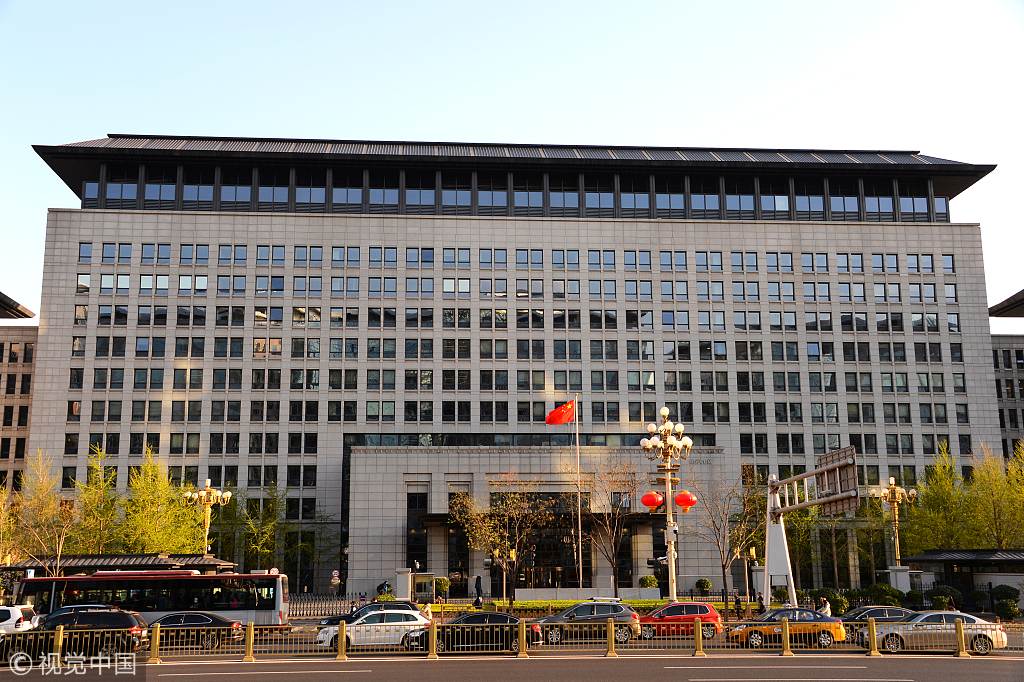China on Thursday vowed to take necessary countermeasures to protect its economic interests against upcoming US tariffs on Chinese goods worth billions of dollars, reiterating that China would not bow to stubborn unilateral actions from the US.

File photo: VCG
In a move set to further escalate the ongoing trade war between the world's two largest economies, the US is scheduled to impose previously announced tariffs on $200 billion worth of Chinese goods as early as Friday.
"If the US disregards the opposition of the vast majority of companies that gave evidence during the public comment period, and willingly imposes new tariffs on China, China will have to take necessary countermeasures," Gao Feng, a spokesperson for the Chinese Ministry of Commerce (MOFCOM) told a press briefing on Thursday.
Gao pointed out that China has already announced tariffs on $60 billion worth of US goods in response to the latter's decision to impose tariffs on $200 billion worth of goods in early August.
"We have the confidence, the capability and the tools to safeguard the stable and sound development of the Chinese economy," the MOFCOM spokesperson said, adding that China will continue to assess the impact of the trade row and take measures to help both domestic and foreign companies in China overcome difficulties they may encounter.
Bai Ming, a research fellow at the Chinese Academy of International Trade and Economic Cooperation, said that while the US' tariffs on $200 billion worth of Chinese goods are much larger than China's counter of tariffs on $60 billion worth of US goods, the effect will be similar.
"The Chinese list was very carefully selected to include high value-added US products so it would inflict the same damage on the US economy as its tariffs might do on the Chinese economy," Bai told the Global Times on Monday.
While the US' tariffs target mostly consumer goods manufactured through a global supply chain, from which China receives just a fraction of the profit, the Chinese list includes more lucrative products including cars, airplanes and liquefied natural gas.
Dialogue only solution
"Any measure to exert pressure on China is unreasonable and will not work," Gao said.
"A trade war will not solve any problem. Dialogue and consultation under equal and honest terms are the only right option for resolving China-US trade friction."
In what experts describe as a vivid example of the failure of the US government's strategy of confrontational and unilateral measures to reduce its massive trade deficit, US official data on Wednesday showed that the overall US trade deficit expanded 9.5 percent to $50.1 billion in July - the highest level since February.
Even worse was the US' trade deficit with China, which increased 10 percent to hit a record high of $36.8 billion in July, according to data released by the US Department of Commerce.
"This is like the US hit itself on the head. The US started trade wars with almost every major economy trying to bring down its deficit but that did not happen," Wang Jun, deputy director of the Department of Information at the China Center for International Economic Exchanges, told the Global Times on Thursday.
Wang noted that the increase in its trade deficit should offer a lesson to US officials that "the trade deficit between China and the US cannot be solved through tariffs because while Chinese products need the US market, US consumers also need Chinese products. You can't change that through tariffs. All it does is raise prices for your consumers and companies."
As the impact of the tit-for-tat trade tariffs has started to show, the US government is facing increased opposition from US businesses, farmers and even some politicians. But Bai said that he does not expect any change in the US strategy anytime soon.
Although broad negotiations between the two countries have stalled, Gao said officials from both sides have been in contact since a meeting in Washington in late August.


